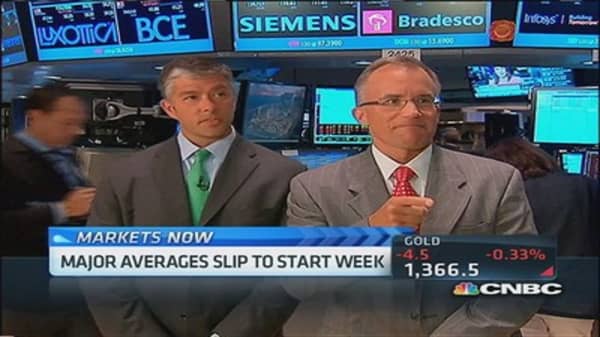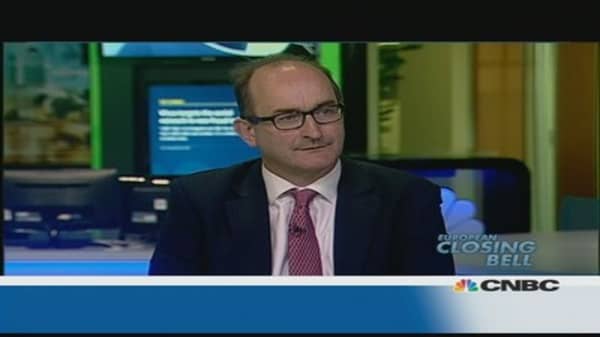"The movement in the market is a bit exaggerated when volume is light and that's going to be the case over the next couple of weeks," said Hogan. "We don't have much this week but we do have a real concentration of information on Wednesday and Thursday including the Fed's meeting minutes…until we get some news in terms of what tapering is going to look like, we may be sideways this week."
With no major economic data on tap Monday, trading will likely be light as investors look ahead to the minutes of the last Fed meeting, which will be released on Wednesday, for clues as to when the central bank will start scaling back its $85 billion per month stimulus program.
(Read more: September or December taper–does it really matter?)
In Asia, China's benchmark index, the Shanghai Composite, climbed 0.8 percent as sentiment recovered, following last week's trading error at Everbright Securities. Plus, the Japanese Nikkei reversed earlier losses after posting a wider-than-expected monthly trade deficit, which cast some doubt on Prime Minister Shinzo Abe's aggressive economic policies.
(Read more: That 6% rally in China? Blame a trading goof)
On the earnings front, Saks slipped after the upscale department-store chain posted a winder-than-expected quarterly loss after weak sales. Saks became the latest retailer to post lackluster sales. Last week, Macy's, Nordstrom, Kohl's and Wal-Martall posted lower-than-expected sales. In July, Saks reached a deal to be acquired by Canada's Hudson's Bay.
Urban Outfitters and Bob Evans are schedule to post results after the closing bell.
Intel rallied after Piper Jaffray lifted its rating on the semiconductor company to "neutral" from "underweight" and raised its price target to $22 from $20.
Google ticked higher on the ninth anniversary of its IPO. The search-engine giant's stock has skyrocketed an impressive 900 percent since going public in 2004 at $85 apiece. Only nine other stocks have outperformed Google in the last nine years. Priceline, Apple, Netflix and Salesforce are among notable names.
JPMorgan Chase declined following weekend reports that U.S. authorities have opened a bribery investigation into whether the bank hired the children of Chinese officials to help it win lucrative business.





